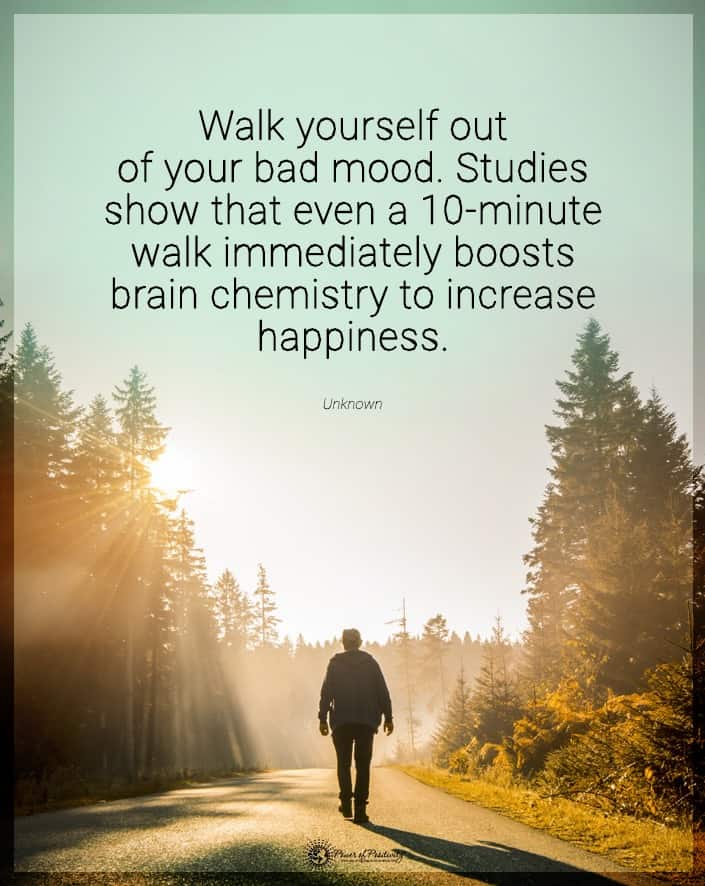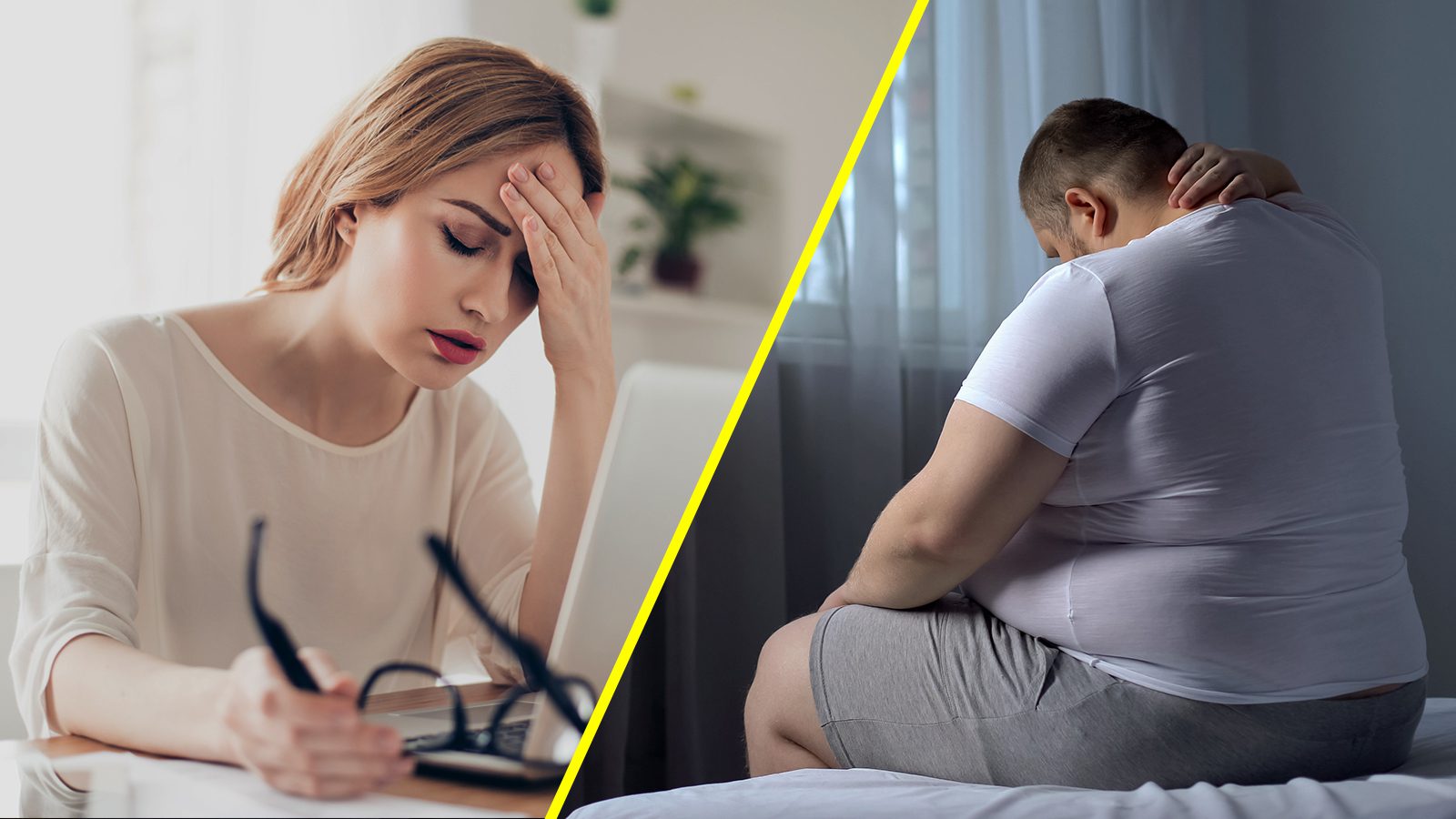What happens to your body during periods of physical inactivity? We will take a closer look at the decline that happens to the human body when you do not get enough exercise.
What Happens To Your Body If You Don’t Move It?
Remember studying Sir Isaac Newton’s Laws of Motion in high school physics class? Since Newton’s discovery is a physical law, it would also apply to human bodies. Do you keep your body in motion, or does it tend to stay at rest? Here are some serious things that can happen to you when you lack physical activity.
1. Your Metabolism Rate Becomes Sluggish
 Remember the boundless energy you had as a kid into your teen years? It probably seemed like your metabolism was set on overdrive. As you cruise into adulthood, things change.
Remember the boundless energy you had as a kid into your teen years? It probably seemed like your metabolism was set on overdrive. As you cruise into adulthood, things change.
Your metabolism slows down as you get older. Other factors that affect your energy levels include basic body structure, weight, gender, and health. Another major contributor is your physical activity levels.
Think of your metabolism as an interconnected process. For example, when you stay active and exercise, your body can burn more calories. Not only will that help you maintain a healthy weight, but it will keep your body fit and active longer.
Conversely, you won’t burn many calories as a couch potato. Your body will eventually adapt to a sedentary lifestyle, and your metabolism is affected. Combine physical inactivity and the consumption of too many calories, and you have a recipe for disaster. You’re at risk for obesity and other severe health conditions.
2. Your Sleep is Affected
Everyone experiences a sleepless night occasionally. According to a study published by the Rand Health Quarterly, at least a third of the people in the U.S. don’t get enough sleep. The ramifications may be more severe than what you think.
An article published by the Sleep Foundation warns that chronic sleep deprivation can affect you physically and mentally. Among the possible consequences the article lists are cardiovascular disease, diabetes, obesity, and mental health disorders. So, sleep isn’t just an optional luxury.
Of course, several risk factors can cause a lack of sleep. Surprisingly, physical inactivity is on the shortlist. While you may feel groggy and sluggish from a sedentary lifestyle, sleep can be a huge issue.
3. You Get Out of Breath Easily
When you are running, lifting, or doing other strenuous activities, it’s normal to get winded. Most people can sit down for a “breather” to rest and restore an average breathing pace. Cardio workouts raise your heart and breathing rate to supply your body with more oxygen to help burn fat.
Physical inactivity can cause your body to have less endurance, including your lungs. For example, you may be gasping and out of breath by simply climbing the stairs at home or work. On the other hand, maybe you’ll notice that you must sit down often to rest and catch your breath if you do any walking.
Aerobic exercise helps bring more life-sustaining oxygen into your body, plus it gives your lungs a healthy workout. Chronically lounging in front of the television puts your body in a snail mode, so you’re entirely winded with the slightest exertion.
What happens when your lungs aren’t bringing in enough oxygen? You could be at risk for several health issues, and your muscles can be weak. Also, you may notice a decline in memory and cognitive skills because your brain is getting less oxygen.
4. You May Experience Mood Swings and Decreased Mental Health
Have you ever seen a spunky and joyful couch potato? Sure, it may be fun to binge-watch a new tv series over a weekend. It may also be a luxurious splurge to sleep in on occasion. However, constant physical inactivity will eventually affect your moods and mental health.
An article published by Johns Hopkins Medical states that physical inactivity can lead to mental illnesses such as depression and anxiety. If you have been diagnosed with one or both disorders, consider how much exercise you get daily.
The good news is that being more active may decrease some of your anxiety and depression symptoms. According to an article published by the Journal of Clinical Psychology, exercises such as walking, swimming, cycling, and even gardening can positively affect.
Exercising can also influence endorphins and other chemicals in your brain responsible for well-being. Do you know that “natural high” you may experience after a brisk walk or other activity? It’s your brain’s way of thanking you for giving your body the desired workout.
 5. Your Stress Levels May Increase
5. Your Stress Levels May Increase
If you are alive, there’s no avoiding stress. Some stress from change is good because it helps you grow and learn. Your body’s instinctual survival mode is dependent on stressors.
Marginal stress is inevitable, but chronic tension and pressure can wreak havoc on your entire being. Humans evolved with a survival response. When triggered, your brain pumps power hormones like adrenaline and cortisone into your bloodstream to boost strength.
Unfortunately, your brain doesn’t prioritize stress and will react similarly in any situation. Therefore, if you are chronically stressed, the overdose of stress hormones can lead to physical and mental disorders.
An article published by the Anxiety & Depression Association states that regular exercise may reduce your responses to stress. Although physical activities won’t make your life stress-free, they may help you cope with stress in better ways.
Even walking for five minutes a day can positively affect your mood.
6. Your Bones Will Lose Strength
If it weren’t for your skeleton, you would be a puddle of flesh and organs. Your bones provide protection, strength, and stability. Your bone joints work in tandem with muscles and connective tissue to make movement possible.
Have you ever heard the warning “use it or lose it?” Besides eating a healthy diet rich in vitamins and minerals like calcium, your bones also depend on exercise for optimal health. Unfortunately, physical inactivity can make your muscles lax and flabby, and it can also weaken your bones.
Women are most at risk for a decrease in bone density, especially those in post-menopause. As a result, they can often develop brittle bone disease and osteoporosis. However, an article published by the American Journal of Physical Medicine & Rehabilitation says that resistance training may reduce these risks.
Do you feel a little achy in your joints? One reason may be that you’re not working them enough.
7. Your Lifespan May be Shortened
It’s good to know that Americans are living longer than they did in the past. A chart published by the UC Berkeley estimates the average lifespan of Americans at the beginning of the 20th century. Female lifespans averaged 48.3 years, while men averaged two years less at 46.3.
In the 21st century, the American lifespan has expanded impressively. Vital statistics published by the Centers for Disease Control estimate an average of 77.8 years for females and 75.1 for males. Many factors account for this increase, including better living standards and health care.
Do you want to be one of the people who live longer? A study published by the University of Cambridge suggests that more active people may live longer than non-active ones. The study mentions a link between being active with fewer risks of certain cancers.
A healthy diet, good mental health practices, and the prevention and control of chronic diseases are vital. All these plus regular physical activities may help give you more quantity and quality of life.
What’s Your Next Step?
It’s never too late to get in better physical health. The most important thing is to get off that couch and get your body moving. You needn’t buy an expensive gym membership or purchase high-dollar exercise equipment to get your desired results. Instead, your body will benefit from many simple exercises you can do at home.
Before you begin any new exercise program, discuss it with your healthcare provider or a certified fitness instructor, especially if you have underlying medical issues limiting what physical activities are best. They can give you information about combining healthy eating habits with a physical workout that’s tailored to your needs.
Your physical activities can be fun, like walking through the woods, swimming, or dancing. However, when you involve your family or an exercise buddy, you are more apt to stay motivated. A bonus has more quality time with your family and friends.
 Final Thoughts on Physical Inactivity
Final Thoughts on Physical Inactivity
Boulders were meant to be stationary, but human bodies are meant to move. Physical inactivity can negatively affect every aspect of your life, and it can make you sick. When you get your body back in motion, you’ll see the benefits. Who doesn’t want to live a long and healthy life?


















